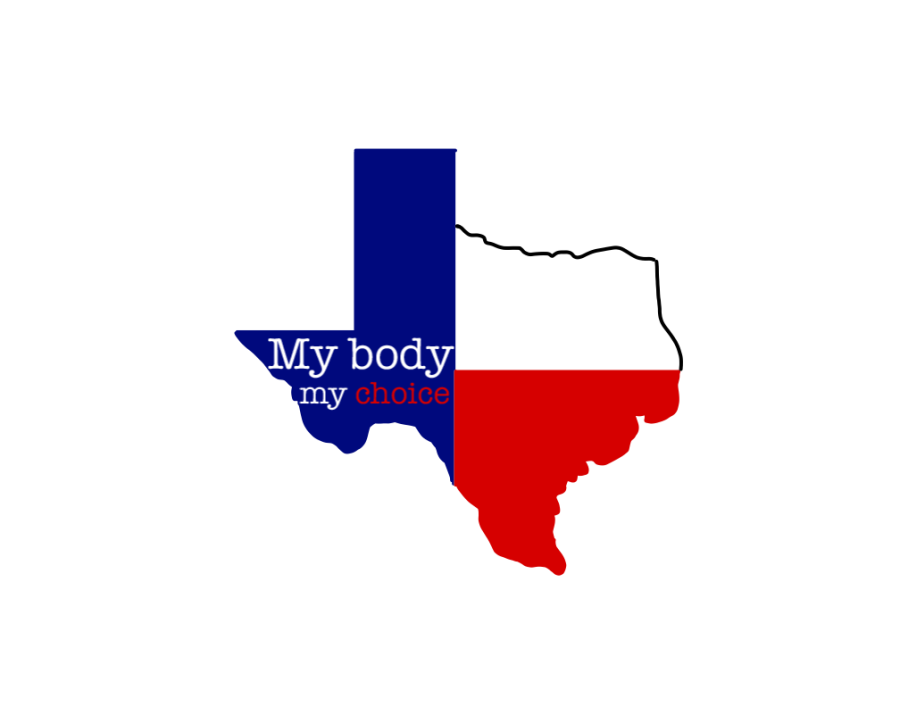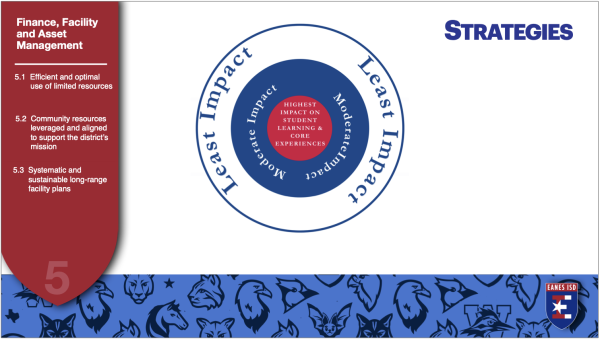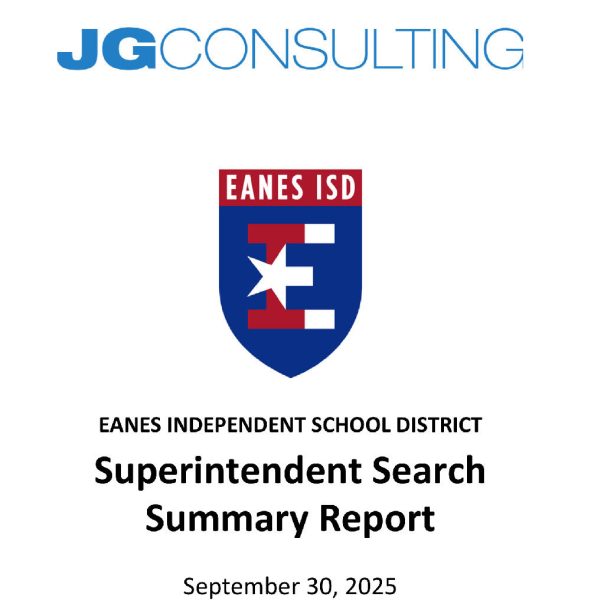Texas abortion law evokes negative reaction in pro-abortion rights senior
“Shut the **** up about our bodies!” Billie Eilish screamed as a wave of cheers surrounded her with agreement. In an instant, the tone of the evening shifted as this performance was no longer just a concert; it was a protest. It was a protest less than 20 miles from my house. It was a protest against laws by which I now have to abide. It was a protest I spontaneously became a part of.
“My body, my ******* choice!” she continued, and I found myself throwing my middle fingers in the air per Eilish’s request.
This protest occurred halfway through her sets at Austin City Limits Festival in reaction to the new abortion law which violates Roe v. Wade, a landmark Supreme Court case which protects United States citizens’ rights to an abortion within the first 24 weeks of pregnancy. The justices ruled in favor of “Jane Roe” in 1973, but the conversation did not end with the Supreme Court’s decision. For nearly 50 years, abortion has been a continuous topic of debate, and in September, Governor Greg Abbott overpowered the discussion between the government and citizens when he signed the law into action.
Now, under the Texas Heartbeat Act also known as Senate Bill Eight, it is illegal to obtain an abortion once cardiac activity is detected in a fetus, usually around six weeks. Other states such as Ohio, Georgia, Louisiana, Missouri, Alabama, Kentucky and South Carolina have previously enacted “heartbeat bills.” Following Abbott’s signing, Texas abortion providers asked the Supreme Court to “freeze” this law to grant citizens more time to react to its constraints, but the court denied the request in late September.
On September 13, Youtuber and board certified OB-GYN Dr. Danielle Jones – known as Mama Doctor Jones to her 1.11 million Youtube subscribers – posted a video titled “ObGyn Explains Abortion Ban in Texas” to educate the public on the logistics of the act. On her channel, Dr. Jones posts a wide variety of OB-GYN related content ranging from reaction videos to educational videos about the world of gynecology as an attempt to normalize conversation about the female body. When this video was posted, Dr. Jones was working as a full time OB-GYN in Austin, Texas, so the topic hit close to home. At the start of her video, she explains the logistics of the ban, and her professional interpretation on the legal jargon. In her professional opinion, Dr. Jones discusses how the terminology used in the bill was not written by a medical professional or someone working in the fields of embryology or gynecology. In my opinion, this is extremely alarming because I believe in science, and I believe that certified medical professionals know far more than I do about medicine and the human body. As a woman in the state of Texas, I am uncomfortable with the language in the bill because it is medically inaccurate and leaves a lot of room for interpretation.
As previously stated in the article, the bill bans abortions once fetal cardiac activity can be detected, but Dr. Jones claims this measurement of a gestational period is somewhat arbitrary because it depends on a doctor’s interpretation of an ultrasound. She says fetal cardiac activity can be detected before and after six weeks, but this depends on the ultrasound machine, the type of ultrasound, and who is performing the ultrasound.
At six weeks, not everyone knows they are pregnant. CNN writer Jessica Ravitz references a statistic by OB-GYN and professor Dr. Jen Villavicenio where she states 45% to 49% of all pregnancies are unplanned. If a woman becomes unintentionally pregnant, she may not be looking for the signs or symptoms. It is also common for women to have inconsistent menstrual cycles, so they may assume their period is delayed. This means a large percentage of women could be unaware of their pregnancies at this six-week mark.
In the same video previously mentioned Dr. Jones claims the earliest possible date to receive a positive pregnancy test is around four weeks and two days thus giving women less than two weeks to terminate a pregnancy.
In section 171.205 of the law it states that earlier sections “do not apply if a physician believes that. a medical emergency exists that prevents compliance with this subchapter.” This statement basically means the only exceptions occur when the pregnant individual’s life is at risk. Dr. Jones claims that a “life endangerment is not a black and white thing. It is not one day everything is fine and the next day [their] life is in danger.” Now with the new law in Texas, it makes it nearly impossible for a doctor to declare a situation as life threatening and act to prevent the loss of two lives rather than one. Based on the wording of this law, people will die because their medical teams’ intuition, opinions, and decisions are restricted by this law.
The only word which fully encapsulates my emotions is fear; I am afraid that someone I love could die because they could not terminate a pregnancy, I am afraid of the government’s control over my body, and I am afraid of what this means for citizens of Texas.
Another layer to this law is that now those who aid the abortion process can be punished for this “criminal act.” All citizens now have the right to file lawsuits against those they feel are guilty for abetting this process. The thing is, under this act, the government cannot prosecute a person for obtaining an abortion, but private citizens can. Under this law, someone can sue for upwards of $10,000 anyone who drives a pregnant woman to or from her operation, performs a procedure or pays for the process. Thanks to this law, new tension is building because the opportunity for man-hunting has arisen. In a Washington Post article, actress Uma Thurman discusses her opinions and experiences with abortion. Thurman refers to people reaping the benefits of this law as “predatory bounty hunters” who are “hounding” those knowingly and unknowingly assisting, such as Uber or Lyft drivers. Thurman’s language and passion speaks to the division this law is bringing to Texas.
In addition to Billie Eilish and Uma Thurman, influential figures such as Rihanna, P!NK, Reese Witherspoon, Chris Evans, John Legend and Cole Sprouse have publicly stated some form of pro-abortion rights opinions. I appreciate these figures because they continue the conversation millions of Americans want to pursue. I don’t agree with every pro-abortion rights opinion, nor do I disagree with every anti-abortion opinion, but I feel these individuals have empowered me to form my own beliefs on the matter.
I would consider myself a supporter of abortion rights, but I respect those who are anti-abortion because I feel the right to an abortion will always be a “gray zone” topic. No matter the laws made, not everyone will be satisfied. Every time I truly try to conceptualize what an abortion really entails, I am overwhelmed by a sour taste in my mouth. Yet every time I think about not having access to safe abortions, the sour taste in my mouth is exponentially worse.
I identify as a Christain woman, but I understand and believe that my faith should not dictate other people’s rights. Unfortunately, this is exactly what is happening with the new law in Texas. Our country was founded on the principle of religious freedom, so why are we creating laws which potentially persecute citizens for having different beliefs? The United States is marketed as the Land of the Free, but people facing restrictions by a faith that is not their own is not representative of the freedom we value. Yes, the anti-abortion stance is not strictly a Christian position, but this does not mean every religious and non-religious citizen aligns with these beliefs.
Since Roe v. Wade legalized abortions in 1973, abortions have increased in the U.S., and according to the Johnston’s Archive, there were 586,760 abortions in 1972, but this increased by around 27% to 744,600 documented abortions in 1973. According to the Guttmacher Institute, between 1972 and 1974, illegal abortion procedures fell from 130,000 to 17,000, and the number of illegal abortion-related deaths decreased from 39% to 5%. Since the documented numbers of abortions increased, there is a belief that the number of abortions in Texas will decrease with this new law. While it is true that the number of documented abortions will decrease, the procedures will persist if there is a demand for them (which there will be). In the state of Oklahoma, abortions are still legal after six weeks, so people could simply cross the state line if they feel so inclined. According to “Abortion and Mental Health,” an article updated in 2018 by the American Psychological Association, one in four women in the United States will have had an abortion by the age of 45. This law simply limits access to safe abortions, increasing the likelihood that pregnant individuals seek illicit methods which place them at severe risk of infection, hemorrhage, sepsis and even death according to “Unsafe Abortions: Unnecessary Maternal Mortality.”
A common argument from the anti-abortion perspective is the “what if” associated with each life lost to abortion. What if they could have cured cancer? What if their children could have cured cancer? What if their children’s children could have cured cancer? While we can explore the infinite realms of “what if,” this decision should not be ours to make. It’s not up to the government to control these “what ifs.” These decisions belong to the individual who is pregnant.
In recent years, I feel there has been great progress in the fight for an equitable society, but this law takes us several steps back because it puts people of color, lower socioeconomic status, sexual and gender minorities and members of other marginalized communities at a disadvantage according to the American Psychological Association. I do not fall into many of these categories, nor do most of the people writing and approving bills throughout the state of Texas. I feel this law is unfair to these communities who lack advocates in the political sphere.
My mind jumps to conclusions as I wonder: What is next for reproductive rights in Texas? Will contraceptives become illegal? Will parental consent laws about birth control change? I feel this new law is taking us one step closer to a society governed by extremist laws. How far are we from societies like in Margaret Atwood’s “The Handmaid’s Tale?” Where will this end?
I believe limiting access to safe abortions is not the best way to reduce abortion. The thing is, not everyone is equipped to raise a child, so we should prioritize the creation and upkeep of viable alternatives. With better government-funded programs, we could increase the percentage of people capable of raising a child with external support. For parents who still feel unable, the government could focus on reforming the foster care system. The government could also dedicate funds to creating a sustainable society which can cater to a growing population. All of these components are steps towards safely limiting abortion through equitable opportunity.
After reading this column, no one needs to agree with me. I am simply a writer continuing the conversation on abortion. My primary intention for this article was not to prove a point – I simply wanted to speak my truth. I encourage readers to form their own opinions, but look at this controversial topic through other lenses.
When I think back to the Billie Eilish concert just three months ago, I think about her passion for a law that does not directly affect her. She is not living in Texas, but she is advocating for the reproductive rights of roughly 29 million people. Her passion has encouraged me to speak out and write this article because I firmly believe that limiting access to abortions in the state of Texas will not solve this problem but will exacerbate it.
*All sources are hyperlinked throughout the story*






